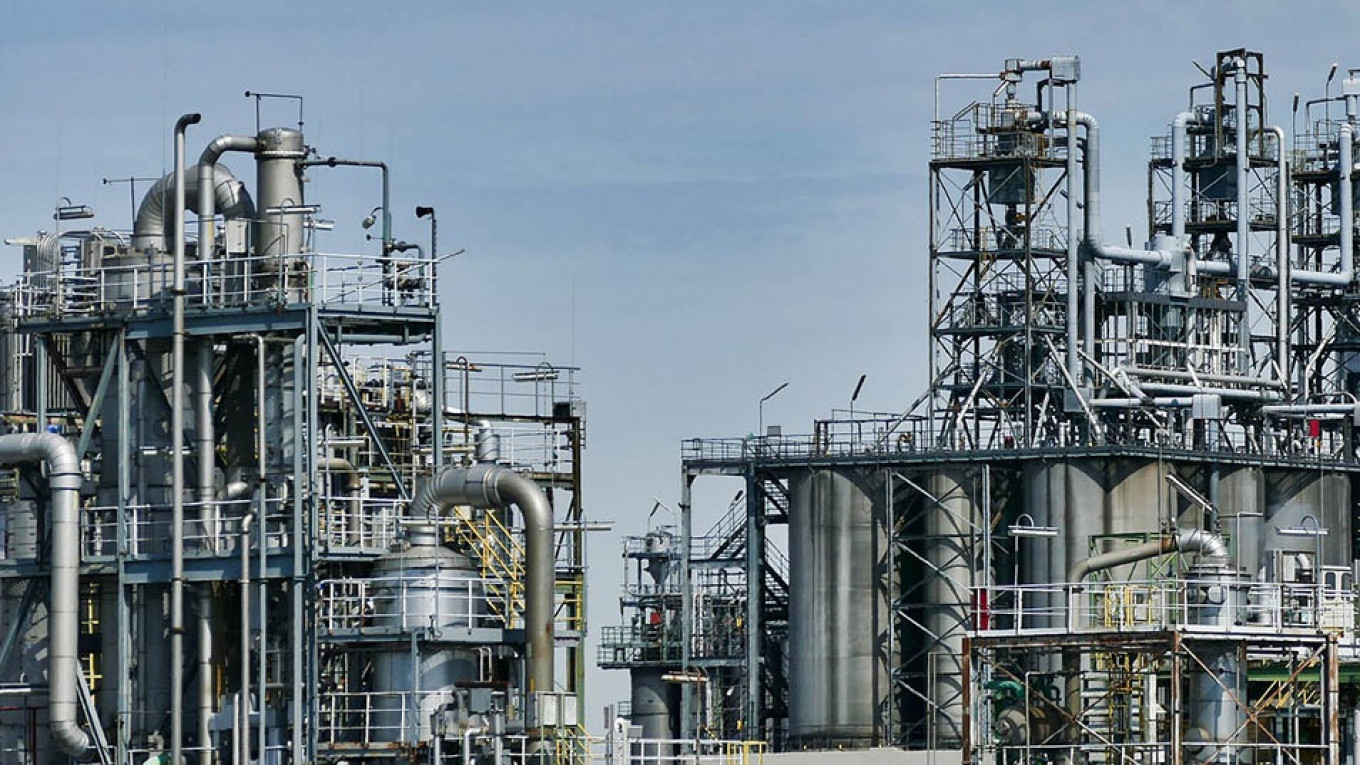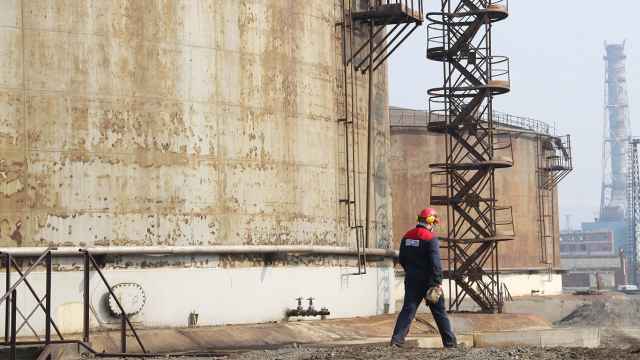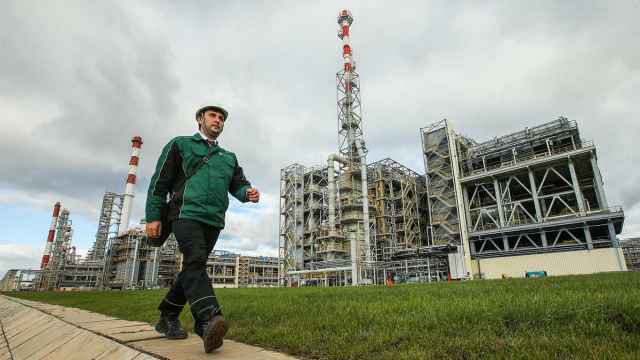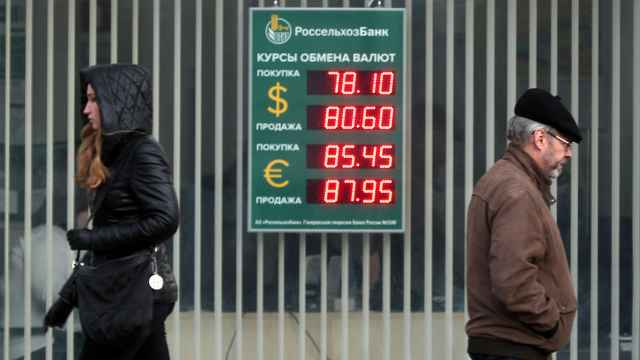Russia’s oil companies are on a tear.
The nation’s top crude producers more than doubled their combined profit in the first half, trouncing estimates thanks to a weaker ruble, rebounding prices and lower taxes. And with output curbs easing, the influx of cash is set to continue.
“Russian oilmen feel financially better than any other crude producer in the world,” said Andrey Polischuk, an energy analyst at Raiffeisen Centrobank in Moscow. “Operating costs are low, production is either already at a record or close to a record, and oil in rubles is setting new historical records.”
Russia’s currency crisis, which has seen the ruble halve against the dollar since the first U.S. and European sanctions hit in 2014, has made it cheaper for local companies to pump oil, while boosting the price of crude in ruble terms. That paved the way for bumper half-year profits, while European and U.S. rivals delivered a mixed bag.
The combined revenue of Russia’s top five oil producers jumped 32 percent to more than 9.9 trillion rubles ($145 billion), while total net income doubled to almost 1.25 trillion rubles.
Yet the risk of more sanctions weighs heavily on the companies, clouding an otherwise sunny outlook.
Shares of Rosneft PJSC, Russia’s biggest oil producer, are trading at seven times estimated 12-month earnings compared with about 11 times for Royal Dutch Shell Plc, more than 12 times for BP Plc and 15 times for Exxon Mobil Corp.
“Russian equities are under pressure because of further sanctions threats,” said Alexander Kornilov, an analyst at Aton LLC in Moscow. This helps the nation’s exporters — including oil companies — by weakening the ruble, but on the other hand this damps their market value.”
The U.S. administration this month imposed fresh sanctions on Russia over the March poisoning of a former Russian agent and his daughter in the U.K. Further sweeping measures may follow in November, including bans on the import of Russian oil and exports of other goods and technology.
‘Imperfect Vehicles’
As long as that risk is on the table, Russian oil stocks “remain imperfect vehicles,” said Julian Rimmer, an emerging-markets trader at Investec Bank Plc in London. “I doubt Russia-dedicated funds are registering inflows, nor will they while the mutual antipathy” with the West persists, he said.
Alexander Losev said he’s also wary of the “geopolitical subtleties,” but believes Russia’s Big Oil will remain attractive in the next six months. The Russian market veteran and chief executive officer of Sputnik Asset Management has started to increase his position in Lukoil PJSC, saying its shares are lagging behind peers.
All the positive drivers behind the Russian oil industry — from global supply risks to the weaker ruble — are here to stay, Losev said. “I’m still holding shares of Russian oil.”
A Message from The Moscow Times:
Dear readers,
We are facing unprecedented challenges. Russia's Prosecutor General's Office has designated The Moscow Times as an "undesirable" organization, criminalizing our work and putting our staff at risk of prosecution. This follows our earlier unjust labeling as a "foreign agent."
These actions are direct attempts to silence independent journalism in Russia. The authorities claim our work "discredits the decisions of the Russian leadership." We see things differently: we strive to provide accurate, unbiased reporting on Russia.
We, the journalists of The Moscow Times, refuse to be silenced. But to continue our work, we need your help.
Your support, no matter how small, makes a world of difference. If you can, please support us monthly starting from just $2. It's quick to set up, and every contribution makes a significant impact.
By supporting The Moscow Times, you're defending open, independent journalism in the face of repression. Thank you for standing with us.
Remind me later.






